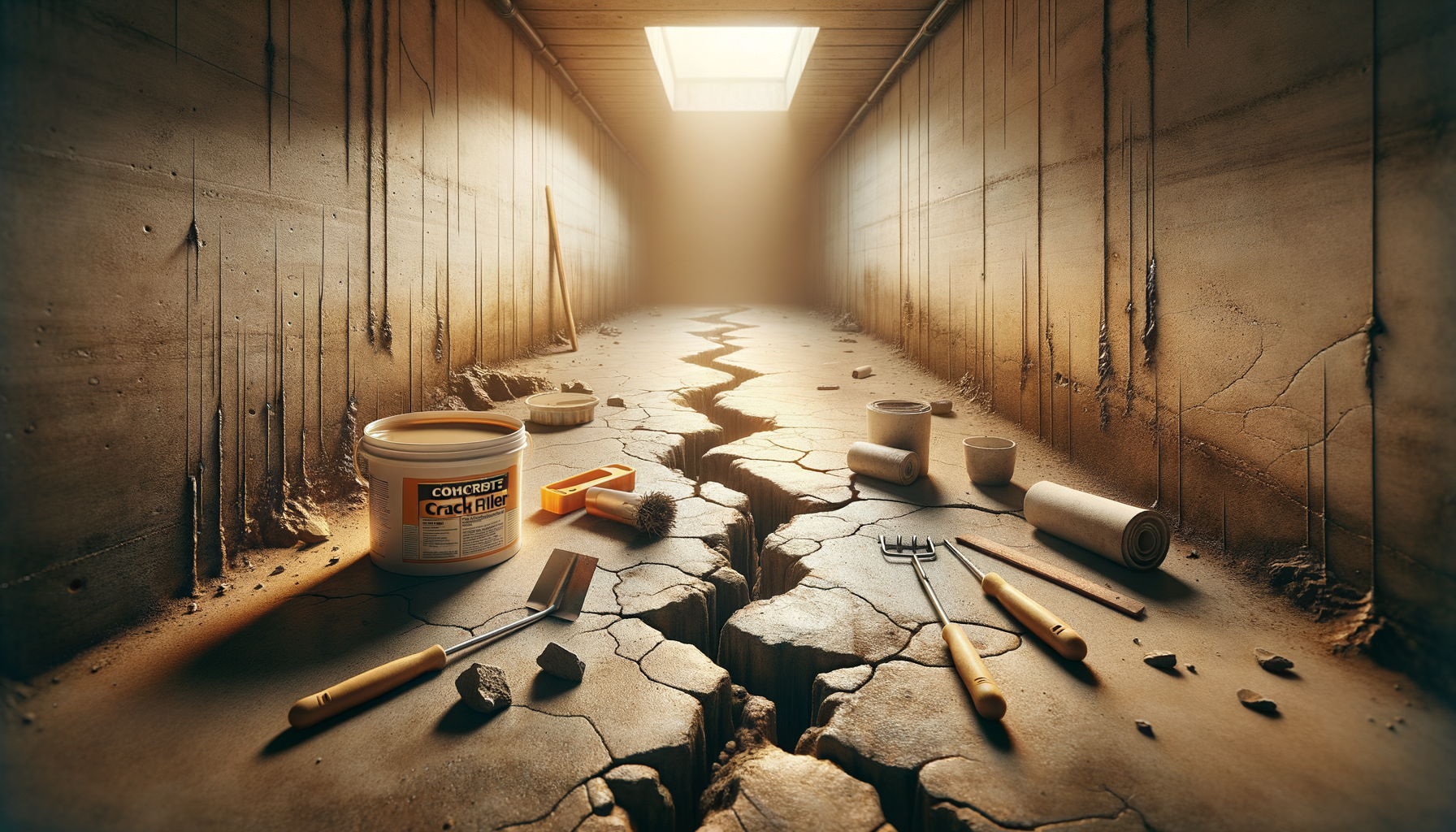Why Cracks in Your Basement Floor Are Important
Have you seen cracks in your basement floor? It’s good to know why they happen and what to do about them. Cracks can cause several problems:
- Water Damage: Cracks let water into your basement, which can make it damp or even cause flooding. This water can damage your home.
- Structural Issues: Cracks might mean there are bigger problems with your house that could get worse over time.
- Pests: Bugs and small animals can get into your home through the cracks.
Why Basement Floors Crack
Knowing why cracks happen can help you stop more from appearing:
- Settling Ground: The soil under your house can move, causing the floor to crack.
- Water Pressure: Water around your house can push against the basement and make it crack.
- Shrinkage: Concrete shrinks as it dries, which can cause cracks.
- Bad Construction: If the basement floor wasn’t built right, it might crack more easily.
Different Kinds of Cracks
There are many types of cracks, and knowing them helps you know how serious they are:
- Hairline Cracks: These are very thin and not usually serious but can get bigger.
- Settlement Cracks: These happen because the ground under your house moves.
- Structural Cracks: These are wide and deep and can mean big problems.
- Shrinkage Cracks: These are from the concrete drying.
- Temperature Cracks: These happen because the concrete expands and contracts with temperature changes.
How to Check Basement Floor Cracks
To figure out how bad the cracks are, you can:
- Measure the Cracks: See how wide and deep they are.
- Look for Other Damage: Check if there are cracks in the walls or if the floors are uneven.
- Monitor the Cracks: Mark the ends and see if they grow.
- Check for Water: See if water is leaking through the cracks.
- Ask a Professional: Get an expert to look at the cracks so you know how serious they are.
When to Worry
There are signs that cracks might be a big problem:
- Growing Fast: Cracks that get bigger quickly can mean big problems.
- Lots of Cracks: Many cracks might mean there are big structural problems.
- Water Leaks: Consistent moisture can show there are water pressure problems.
- Uneven Floors: This can mean there are serious settling issues.
- Stuck Doors and Windows: These can mean your foundation is moving.
Fixing Small Cracks Yourself
For small cracks, you can try these fixes:
- Concrete Crack Filler: This works for small hairline cracks.
- Epoxy Injections: Good for bigger cracks that might let in water.
- Sealant: Put this over the crack to keep moisture out.
- Patch Kit: Available in stores, these can fix small cracks.
- Surface Repairs: Use waterproof materials to protect minor cracks.
When to Call an Expert
Sometimes you need a professional to fix the cracks:
- Lots of Big Cracks: Many large cracks need professional help.
- Water Problems: Constant water leakage is a big issue.
- Foundation Problems: Serious settling needs expert care.
- Failed Fixes: If your DIY repairs don’t work, call a pro.
- Structural Cracks: Wide and deep cracks need experts.
How to Stop Future Cracks
You can take steps to prevent more cracks:
- Good Drainage: Make sure water flows away from your house.
- Keep Soil Moisture Steady: Use landscaping to keep the soil around your house even in moisture.
- Proper Concrete Work: Ensure new floors are built properly.
- Regular Checks: Look for cracks and moisture in your basement often.
- Foundation Checks: Have experts check your foundation regularly.
Final Tips for Homeowners
Dealing with cracks can be scary, but these tips can help:
- Keep Records: Write down when you see cracks, any repairs you make, and what experts say.
- Learn About Cracks: Knowing why they happen and how to fix them helps.
- Act Fast: Fix small cracks before they become big problems.
- Save Money for Repairs: Be ready to spend money on unexpected repairs.
- Ask for Help: If you’re unsure, call in an expert.
By following these tips, you can manage cracks in your basement floor and keep your home safe.


Leave a Reply